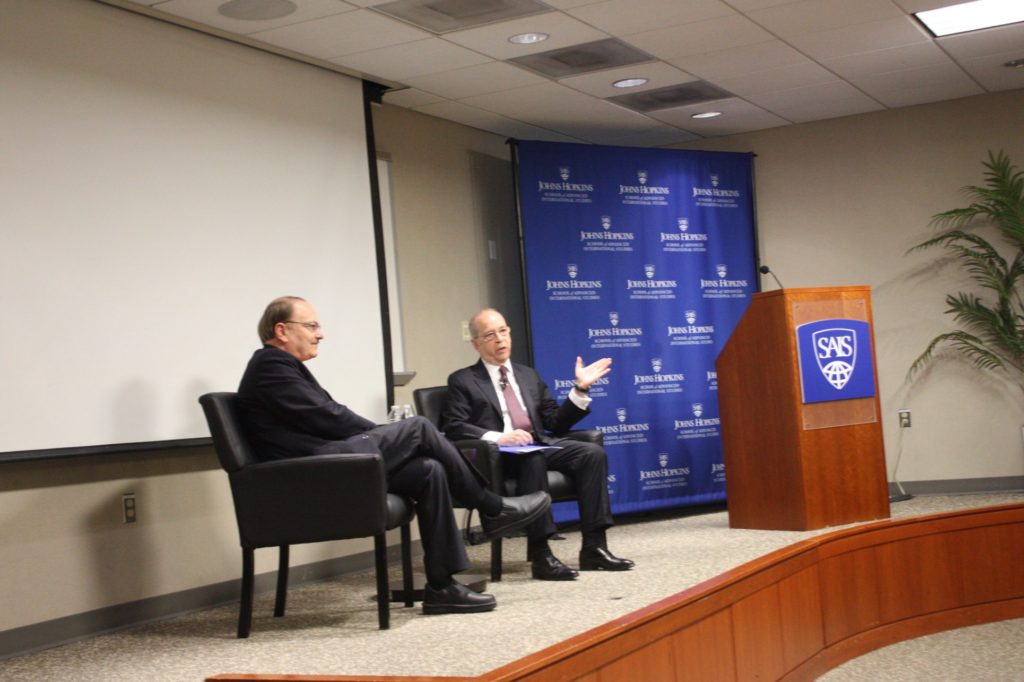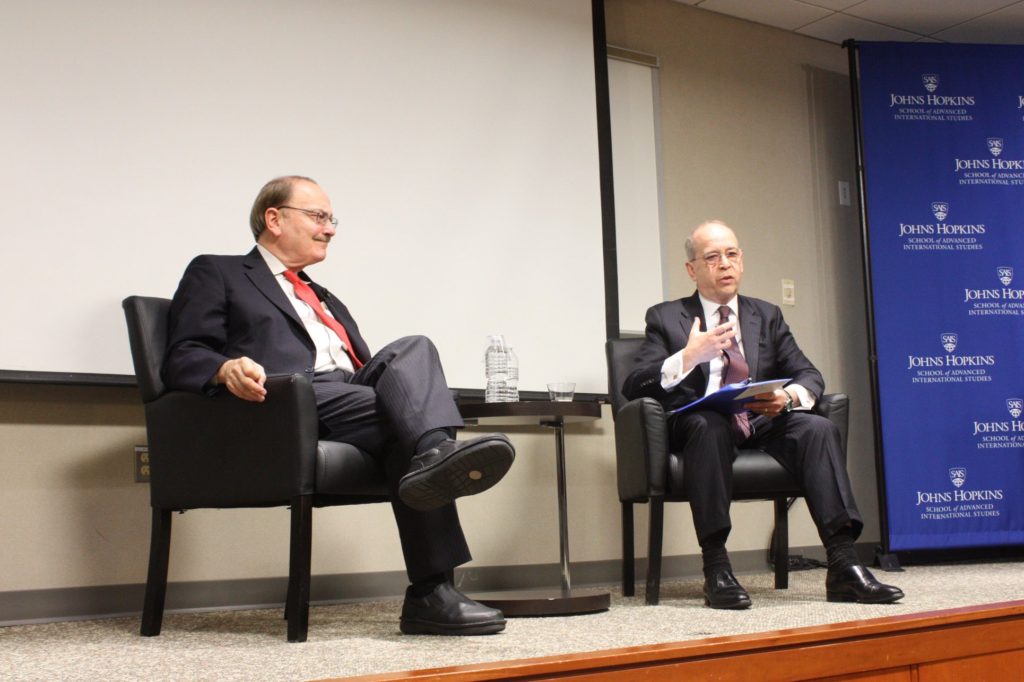Reischauer Center 2019 Memorial Lecture: Daniel Russel
Reischauer Center 2019 Memorial Lecture: Daniel Russel
On Tuesday, November 19, 2019, the Edwin O. Reischauer Center for East Asian Studies hosted its annual Reischauer Memorial Lecture with speaker Mr. Daniel Russel.

Russel was Former Assistant Secretary of State for East Asian and Pacific Affairs, and is currently Vice President of International Security and Diplomacy at the Asia Society Policy Institute. A career member of the Senior Foreign Service with extensive experience in Asia, Russel discussed the status of the Japan-U.S. alliance and Japan’s role in the Indo-Pacific region. He argued that as the U.S. has focused on strengthening alliances within Asia, Japan functions as a cornerstone. The JSDF has allowed for an increased security alliance with the U.S., and the economic and political alliances between the U.S. and Japan remain strong. In spite of the “revolving door” Prime Ministers and the major U.S. foreign policy shifts under the Trump administration, there is continued public support for the alliance and positive perceptions both countries.

Despite tensions in Asia, Japan has helped usher in a normalization of relations throughout the region, and is a critical advocate for a free, independent Indo-Pacific. Russel views Japan’s regional involvement as effective because it is done collectively, with Japan continuing to provide substantial investment into Asia and greater FDI into the region than China. He concluded that Ambassador Reischauer saw the potential of Japan as a regional leader, and believes that Japan has successfully played that role. Russel continued his discussion of Japan’s regional concerns through questions presented by Reischauer Center Director Dr. Kent Calder, as well as other Johns Hopkins School of Advanced International Studies | SAIS faculty and students. A major concern presented was that shifting U.S. activity in the Asian region was forcing Japan to choose between the U.S. and China. He argued that it was important not to force U.S. allies into impossible positions, and that it is critical to find a middle ground where countries like Japan can manage their relationship with the U.S. while balancing China, and safeguard their collective interests.
Categories
© 2024 The Edwin O. Reischauer Center for East Asian Studies at the Johns Hopkins School of Advanced International Studies (SAIS), a division of the Johns Hopkins University. All Rights Reserved.
Sitemap | Custom WordPress Design, Development & Digital Marketing by time4design.


